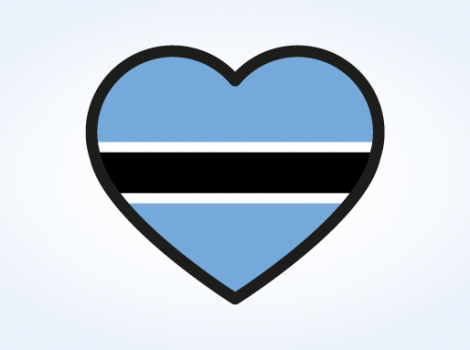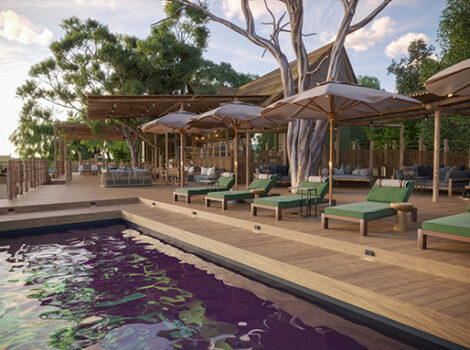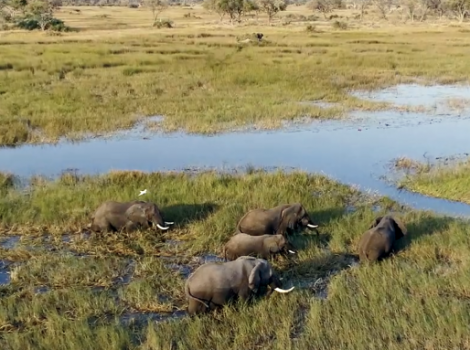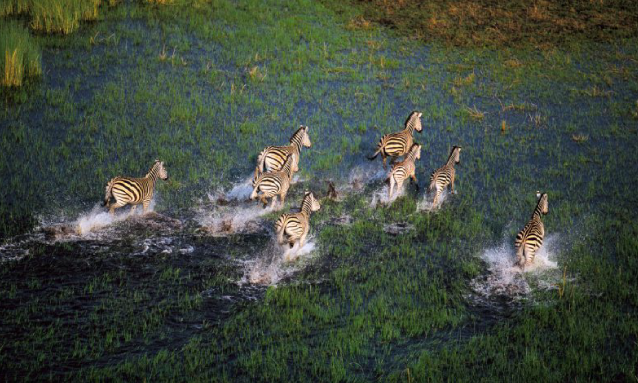
With the pandemic decimating the tourist industry, locals are delighted to welcome visitors back to this magnificent wildlife haven. OKAVANGO DELTA: Reclining in the middle of a dug-out canoe, slicing through a clump of reeds that gives way to a large open pond covered in lily pads, the wonder of the Okavango Delta truly becomes clear.
A mokoro ride is a staple of a visit to Botswana’s tourism crown jewel — the place where the mighty Okavango River flows in from the Angolan highlands, splintering off across 15,000 square km of African plains towards the Kalahari Desert. Being punted along by a wiry villager from a neighbouring village, who stands sentinel at the back of the canoe with a large pole, reminiscent of a Venetian gondolier, is a favoured experience for international tourists, and the waterways are often packed with foreign faces taking in the country’s famed wildlife. But not this year, of course.
The serenity of floating through one of the Delta’s famed papyrus-lined channels is the hard-earned payoff for the assault course you have to conquer to arrive here. The two-hour speedboat ride to your mokoro involves papyrus reeds, branches and large insects whipping your face while a strangled boat engine threatens to cut out as your guide deftly navigates the overgrown channels. There are no tourists around this year, our guide explained, and therefore fewer boats puttering through the channels to keep the fast-growing papyrus that dominates the Okavango back. Some channels are at risk of being swallowed forever.
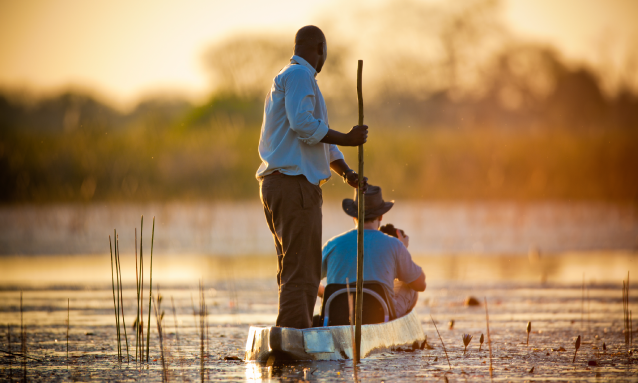
Botswana – like so many other tourism-reliant countries – is suffering from the COVID-19 pandemic’s impact on international travel. It closed its borders on March 24, 2020, and reopened eight months later, in a bid to lure back travellers. It hasn’t yet been successful. During our trip to three camps in the Delta in January, we were only the second international guests to have arrived since the reopening. The vast majority of lodges across Botswana remain closed. But there is a flip side to this. Botswana – which has long marketed itself as a luxury tourism destination (Prince Harry got engaged to Meghan Markle here) – offering opulent all-inclusive lodges that routinely run up to $4,000 per night, has had to bring down its nightly rates to incentivise locals to travel. The country has traditionally favoured a sustainable travel model similar to Rwanda and Bhutan – keeping prices high to ensure no mass tourism. Until now, most lodges in Botswana did not have “international” and “local” prices. But introducing the dual rates, sometimes a quarter of the international price, has worked to some extent. During December and the first week of January, Roots and Journeys, which operates water-based lodge Mopiri and land-based lodge Nokanyana, reported full houses.
The company adamantly believes there is a mid-range market just waiting to be catered for in Botswana. Their $500 all-inclusive offering is a fraction of the cost of other camps in the area, and though it’s a more rustic experience, you do get to see the same wildlife. It was at Mopiri Camp that we took to the water on a mokoro ride. While it can seem like a gimmick, the half-day excursion in a mokoro also demonstrates just how entwined many of the lodges are with their local communities. Food is purchased from the tiny nearby village of Etsha 6. Our mokoro guide, Alco, is from the neighbouring village of Tsau.
“Corona was an eye-opener,” our camp guide Sediq says. “The locals poured in because it was cheap. We survived because of them.”
The 5-star experiences are finding it just as hard. Nearby is one of Botswana’s most famous lodges: Belmond Savute Elephant Lodge. Located right in the middle of Chobe National Park, on the edge of a watering hole frequented by giant elephants, we are its only visitors. The camp has stayed open regardless — a commitment to keeping its staff in jobs. The staff member showing us to our rooms laughs as I suggest she must be annoyed at our interruption of a rare time of quiet.
“No way,” she says. “We are so bored. We miss our guests. We get excited when people come.”
The elephants seem to agree. They’re out in force over the next few days, perhaps revelling in the lack of tourists. We spot lions crossing a tar-sealed road, gazelle aplenty and – the highlight – a pack of wild dogs reclining on a roadside.
Our guide tells us we’re “very lucky”. But perhaps it’s just the animals reclaiming what’s rightfully theirs.
Source: http://www.arabnews.com/node/1851436/lifestyle

